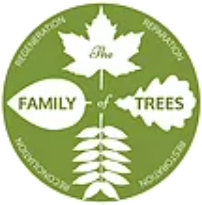“Do you enjoy lifting heavy rocks?” This was a question I was asked during an interview last spring. By answering, “Yes” to this question, I found myself working as a farm intern on an off-the-grid homestead in southeast Minnesota. Considering I received a Bachelor’s degree in Fine Arts in Graphic Design and Illustration, one might not necessarily expect I would fall into the career path of organic agriculture. Despite my sincere intentions of pursuing creative work, I am equally interested in farming as a livelihood. I suppose the story of how this came to be, is slightly more complex…
The motivation to try my hand at farming stemmed from a growing desire to lead a balanced, sustainable lifestyle. As a self-employed Graphic Designer and Illustrator, I had become disillusioned with the path that lay before me. Although I found creative work extremely gratifying, I discovered—through an ever-increasing sense of nostalgia for the natural environment of my childhood—that in order to stay inspired and make work that sustains my practice, I needed to be more connected to nature. After nine years of living and working in Minneapolis, I found myself longing for a natural setting. I needed a change in context. It was through the research of self-sufficient living, small organic farms and intentional communities that I arrived at the realization that I wanted farming to be the counterpoint to my creative process.
I stumbled on an internship at DreamAcres Farm through the World Wide Opportunities on Organic Farms (WWOOF) directory, which described DreamAcres as: “a beautiful, 60 acre, off-the-grid homestead nestled in the bluff lands of southeast Minnesota…” If that wasn’t convincing enough, the remainder of the description seemed to match my interests in traditional homesteading. I knew as soon as I set foot on the farm, that it was the place I wanted to be for the duration of the season. The farm family gave me a warm welcome, and made me feel at home immediately.
By immersing myself in a full-season farming experience, I now have a strong grasp of what it takes to operate a Community Supported Agriculture (CSA) farm. Not only did I gain a thorough understanding of the farm’s process from planting to harvesting, but I also acquired an invaluable experience in carpentry, stone masonry, animal power and alternative technologies, along with an understanding of how these things contribute to the farm as a whole. I feel inspired by the notion that I helped provide healthy, nourishing food for an entire community, and I came away from the experience with a heightened appreciation for locally produced food. Above all, through this experience, I have been blessed by the simple pleasures of feeling the earth beneath my feet, relishing in the sun, waking up when the rooster crows and owning the distinct satisfaction of seeing the fruits of my labor.
MN Homegrown Cookbook by Renewing the Countryside. Voyageur Press 2007.
Managing Your Personal Food Supply by Ray Wolf. Rodale Press 1977.
Farmer John’s Cookbook: The Real Dirt on Vegetables by John Peterson. Gibbs and Smith Publishers 2006.
The Complete Book of Self-Sufficiency by John Seymour. Faber 1976.
DreamAcres
Wykoff, Minnesota
507-352-4255
en.wikipedia.org/wiki/Dream_Acres
Tillers International
Scotts, Michigan
800-498-2700
tillersinternational.org







